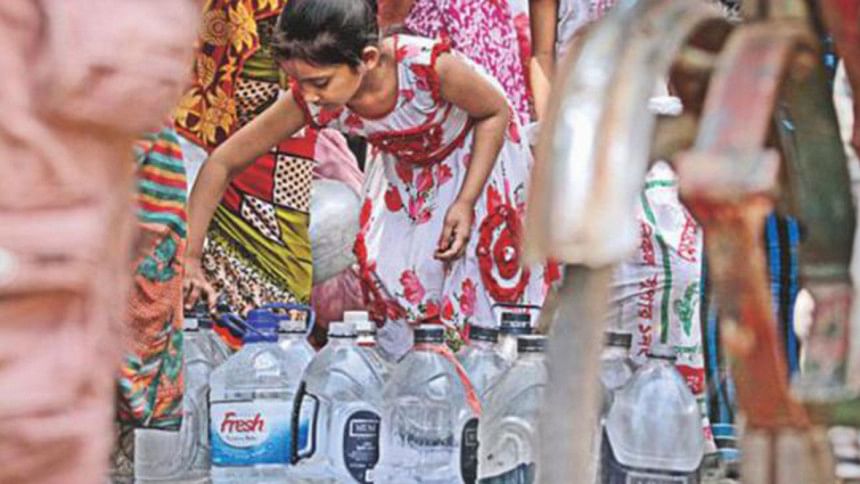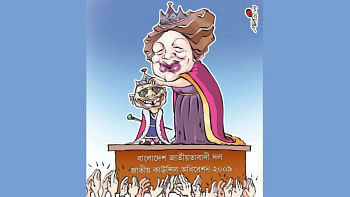Report on areas with polluted water supply: HC

The High Court has wanted to know about the areas of Dhaka city where water supplied by Wasa is contaminated and unsafe.
The court asked writ petitioner Advocate Tanvir Ahmed to inform this to the court by Monday.
Advocate Tanvir Alam, a Supreme court lawyer, told The Daily Star that he will collect the information of polluted and unsafe Wasa water through the media and other sources.
The High Court bench of Justice JBM Hassan and Justice MD Khairul Alam passed the order during hearing a writ petition filed by the SC lawyer.
Earlier in the day, Dhaka Wasa submitted a report to the High Court through Deputy Attorney General Motaher Hossain Sazu as per its earlier order.
In the report, Dhaka wasa said it has formed a four-member committee comprising experts from the ministry of Local Government, Rural Development (LGRD) and Cooperatives, Bangladesh University of Engineering and Technology (BUET), Dhaka University and International Centre for Diarrhoeal Disease Research, Bangladesh (icddr,b) to examine the quality of the water supplied by the Wasa.
Dhaka Wasa stated in the report that it will examine the water by three labs those of DU, BUET and icddr,b after getting the necessary funds from the government.
The Wasa also said in the report that it will take at least four months to get the Wasa water tested at the labs, DAG Motaher Hossain Sazu told The Daily Star.
He said the HC will pass further order on this issue on next Monday.
The High Court, on November 7 last year, formed a five-member committee to examine the quality of water supplied by Dhaka Water Supply and Sewerage Authority (Wasa).
The court also issued a rule asking the government authorities concerned to explain why their failure and inaction to supply safe water should not be declared illegal, and why they should not be directed to do so.
The same HC bench delivered the order and rule, following a writ petition filed by Supreme Court lawyer Tanvir Ahmed.
In the petition filed on October 14, he included a report published by The Daily Star on October 12, based on a World Bank study.
The World Bank report said 98 percent of Bangladesh's population has access to water from technologically-improved sources, but E coli contamination was found in 80 percent of household tap water across the country.

 For all latest news, follow The Daily Star's Google News channel.
For all latest news, follow The Daily Star's Google News channel. 



Comments